|
|
A postscript
to the Mediterranean dream
Neil Ingram:
'Four holes in the ground' is a jokey pun linked
to the last line ('well, well, well, well, geddit?). The joke hides a bleak
song that continues the introspection further. In a world of seemingly unlimited
wealth and possessions, what is there of true lasting value (the pearl in the
oyster of the previous song)?
And if life is just crystal
balls and luck
I couldn't give a ...
And if life is just this carousel
Sometimes it's heaven.
But mostly its hell
Just a paper shell
The emptiness of the rock and
roll lifestyle are being dissected with a precise anger. The irony is, of course,
that the songs were being sung by a band that aspired to that lifestyle. Dig yourself a... Neil Ingram: well, well, well, well Is a funny, but not entirely satisfactory
ending. The problem remains, and we grin and bear it. "Mustn't grumble".
Jon Green:
I suspect we all aspire to something more than what we've got, in terms of material possessions. So the song is about all of us . . . in danger of becoming a sad paper replica of our selves.
hole, as the proverb goes.
... that's life.
Neil Ingram:
Is My Face On Straight is the
first 'English' song to appear on an Italian PFM album. It is an indicator to
the kind of song that Peter Sinfield could co-write with the band (as compared
with re-interpreting the songs they had written). It is an acerbic satire on
modern social life, where we have to 'do our bit'. It applies as much
to the annual office Christmas party (the 'turkey party convention') as it does
to life within the biggest rock band in the world.
The song finds Peter Sinfield
at his most sardonic: mocking those 'formal' situations where we are 'expected'
to conform to the social norms of the group. It is a song for all those who
have ever felt themselves outsiders, 'not quite belonging'. A new child at boarding
school, or an adult joining a new company, it is all the same, really. Inflate your waistcoat, wind
down your eyes, Here we have the grotesque characteristics
of the 'hearty' dominant group. With an image from Orwell's Animal Farm, the
overweight ('inflate your waistcoat') tiny piggy eyes, ('wind down your eyes'),
with a forced jollity that masks its true purpose. The best way to fit in is to conform, and:
Tie on your best smile, check
your disguise. Social acceptability does depend upon the status
of one's family, so if in doubt it is best to: Hide your relations under
the stairs. Sociability depends upon performing well at
annual events, be they office Christmas parties, or sales conventions: You're invited to attend
the turkey party convention;
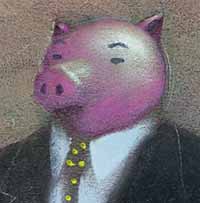
Dry-clean your old jokes, practice despair,
Isn't that nice?
You can leave your troubles
at the door
We have ways to make you cheer .
At the same time, it is fiercely critical of those who do not 'fit in':
As long as you're not sick
or poor
A negro or a queer.
Curiously, groups do not usually realise that they admit or exclude new members as a way of reinforcing their own identities. Most of the exclusion is done unconsciously, depending upon whether the potential new recruit is 'one of us' or not.
As the 'newbies' are drawn further into the group, they can be initiated into the ways of the group. They seem to 'settle in' and 'make progress'. The group is helpful and supportive, as long as the 'newbies' do not step out of line.
We can fit you with a suit
of clothes
That will make you look like us,
An appointments book and a new outlook
A ladder or a truss
Some social groups are more influential than others. Rock-and-roll groups are richer and more influential than most, and the next few lines satirise what it is to be taken to the top of the mountain and be tempted with the pleasures of the world spread out below:
Have another cup of reality
Drink and drink some more!
You can own a boat, a house, a car,
Or live like Howard Hughes;
Come on what have you got to lose...
And if you're discreet there are pleasures sweet
You can even swap your wife
There is a cost, of course, and the first step is commitment and tacit acceptance of the group behaviour:
If you'll only sign the dotted
line
You'll be fine... Oh so fine...
The stresses belonging to a social group have to be hidden from the other members at all costs. This can lead members to privately use and then abuse alcohol, prescription tranquilisers and 'recreational' drugs in an attempt to cope with 'reality'.
Thank you for joining here
are your pills
The man in the white coat wilI send you the bill.
Would you like to meet
Our most distinguished member... a doctor Faustus by name!
Doctor
Faustus is a character invented by Christopher Marlow, who sold his soul
to the devil in exchange for unimaginable wealth. This is a chilling reprise
of some of the themes that have been flowing beneath the surface of the songs
on this album. Is my face on straight? 'Is my face on straight?' is an informal way
that women ask if their make-up is smudged or running. It also hints at people
hiding behind masks (false faces) as part of a play or a masked ball (masquerade).
We can all be very adept at such social situations, but it does not prevent
us worrying about the 'little things': Will they laugh at the gate Oh I mustn't be late Will they let me through
the gate Oh I mustn't be late

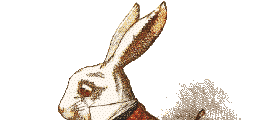
![]()
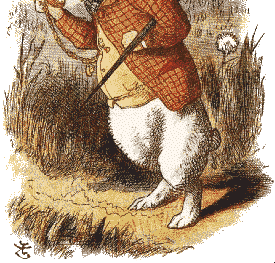
Have Your Cake and Beat It
Jon Green:
Undoubtedly coined by Peter Sinfield, the title of the last track, Have Your Cake and Beat It, speaks to the human condition. Everyone wants to have their cake and eat it too. That is we all want to be pure of spirit while at the same time thriving in the material world. This would appear to be the album's major theme. The world became the world. Spirit became flesh. When the unconscious "ape" became the self-conscious human our faces were horribly changed.
And yet there are still times when, in the silence and shelter of the inner courtyard, we can get back in touch with the inner voice.
in a well cut suit of selfishness,
just looks away,
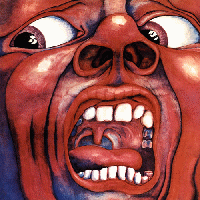
In every song on the album there is a "now this - now that" dichotomy, contrasting the inner reality with the outer, confronting us with the tension. On The Mountain we are presented with the before and after of "ape" (human) consciousness. The pictures on the album's outer and inner sleeves (respectively, utopic and dystopic) also serve to illustrate this point.
From the primal scenes of The Mountain, through the quiet, thoughtful, "I'm on the outside looking inside" verses of Just Look Away, to the poetic reverie of The World Became the World's first two verses, side one represents the narrator "in the world but not of it".
And just as . . .
This tension between inner and outer is resolved in Peter Sinfield's instruction in the title of the last track :
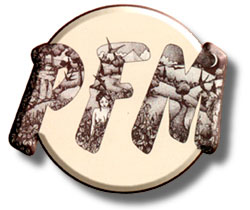 |
Neil Ingram:
Peter Sinfield's direct association
with PFM ceased after the release of this excellent and underrated album. This
was partly due to his increased commitments to ELP. The excellent Photos
of ghosts website wrote to Peter Sinfield to find out more. This was his
reply to them:
"The boys did ask me to write the lyrics to "Chocolate Kings". I remember it well one evening at Greg Lake's house, if I would write the words for what was to become that album. However they insisted, as folk do on the cusp of success, that I must pay more attention to what 'they' wished to say and that it must be much more political and anti the US involvement in Vietnam. Since I lean naturally to the left, as it were, that should not have been a problem. However I declined. One because I had other work to finish, two because I couldn't face the thought of more endless vocal sessions but most importantly because I could not comprehend the irony of a European band on the verge of acceptance in the USA wishing to piss on their audience. The political views of the band at that time went from left to right. . .I wonder if you can guess which one was the 'communist' with a holiday home in Sardinia."
The legacy of Sinfield's songs with PFM is considerable. There is a coherent set of songs that reveal the versatility of Peter Sinfield as a writer. He was able to produce lyrics consistently that fit the mood, metre and sound of the previously recorded songs perfectly, and which fitted into the contemporary trends in progressive rock. As such they provided the vehicle for PFM's assault on the UK, Europe and America. Most significantly, they also provided Peter Sinfield with the opportunity to make more personal social and political statements, often as undercurrents below the 'surface' interpretations of the songs. This is a technique that he has continued to employ with considerable success at each stage of his subsequent career.
|
|
|
Sign
the Dreambook
![]() Read
the Dreambook
Read
the Dreambook

|

|

|

|

|

|

|

|

|

|

|

|

|

|

|

|
 |
 |
 |
 |
 |
|
| Works |
Lyrics
& Poems |
Gallery |
Guestbook
Archive |
Links | Discography |
E-mail:
Peter Sinfield Jon Green |
Page One |

 Arachnophilia
Arachnophilia